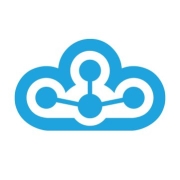Development Platforms enable software creation by providing essential tools, libraries, and frameworks. These platforms streamline the development process, enhancing productivity and reducing time-to-market.
Development Platforms are instrumental in today's digital landscape, offering a range of functionalities from coding assistance to deployment and maintenance tools. They cater to different types of developers, from beginners to professionals, making the software development lifecycle more efficient. By integrating with other enterprise systems, these platforms help in maintaining cohesive and collaborative workflows.
What are the key features?In healthcare, Development Platforms help build secure and compliant applications, ensuring patient data privacy and smooth workflows. Retail businesses leverage these platforms to create responsive e-commerce sites with integrated payment gateways.
Development Platforms are crucial for organizations looking to improve their software development processes, enabling faster delivery, better collaboration, and enhanced application performance.






















Choosing the best Development Platform depends on your project's needs, technical requirements, and team expertise. Consider factors like scalability, cost, supported languages, and community support. Evaluate whether the platform integrates easily with existing tools and offers sufficient documentation. Try to select a platform that provides flexibility and enhances productivity for your development team.
What are the key benefits of using a low-code Development Platform?Low-code Development Platforms simplify the app development process by enabling users to create applications with minimal coding experience. They reduce development time and costs, accelerate deployment, and facilitate rapid prototyping. By providing drag-and-drop interfaces and prebuilt templates, these platforms empower business users to build applications, which can help bridge the gap between IT and business stakeholders.
How do Development Platforms support cloud integration?Development Platforms support cloud integration by providing APIs, SDKs, and connectors that facilitate seamless interaction with cloud services. They enable you to deploy applications to cloud environments, offering scalability and flexibility. Many platforms offer direct integrations with popular cloud providers, ensuring secure data transfer and real-time updates. This enhances application performance and availability while reducing infrastructure management headaches.
What security features should you look for in Development Platforms?When selecting a Development Platform, prioritize security features such as data encryption, multi-factor authentication, and role-based access control. Look for platforms that comply with industry standards and provide audit and logging capabilities to monitor activities. Platforms that support secure API integrations and regular security updates can help protect your applications from potential vulnerabilities and data breaches.
How can Development Platforms enhance your team's collaboration?Development Platforms enhance collaboration by offering features like shared repositories, version control, and integrated communication tools. They allow multiple team members to work simultaneously on projects and streamline workflows. Platforms often provide dashboards where teams can track progress and manage tasks efficiently. This leads to improved productivity, faster problem-solving, and better coordination across distributed teams.